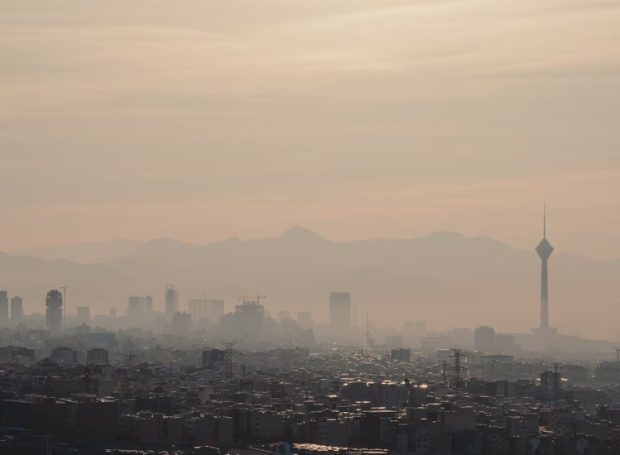
Air pollution linked to increased risk of getting sick from COVID-19: Study
PTI, Nov 19, 2021, 10:17 AM IST

Source: unsplash
London: Long-term exposure to air pollution is associated with an increased risk of developing COVID-19 among people who get infected with the SARS-CoV-2 virus, according to a study conducted in Spain.
The research, published in the journal Environment Health Perspectives on Wednesday, provides further evidence on the health benefits of reducing air pollution, and highlightS the influence of environmental factors on infectious diseases.
The researchers said previous studies have suggested that regions with higher pre-pandemic levels of air pollution had a higher incidence of COVID-19 cases and deaths.
However, the reasons for this associations are not yet clear, they said.
According to the researchers, air pollution could favour airborne transmission of the virus, or it could increase an individual’s susceptibility to infection or disease.
”The problem is that previous studies were based on reported cases, which had been diagnosed, but missed all the asymptomatic or undiagnosed cases,” said study first-author Manolis Kogevinas from Barcelona Institute of Global Health (ISGlobal) in Spain.
The researchers measured a series of virus-specific antibodies in a group of adults living in Catalonia with information on the long-term exposure of such individuals to air pollutants such as nitrogen dioxide (NO2), small particulate matter (PM2.5), black carbon and ozone.
”This is the first study to perform mass screening of SARS-CoV-2 specific antibodies in an adult cohort to examine the association between their residential exposure to air pollution before the pandemic, SARS-CoV-2 infection, and disease,” said Cathryn Tonne, a co-senior author of the study, from ISGlobal.
The research included 9,605 participants including 481 confirmed COVID-19 cases (5 per cent).
Blood samples from over 4,000 participants were also taken to determine the presence and quantity of IgM, IgA and IgG antibodies to five viral antigens, that cause the body to make an immune response against it.
Of these, 18 per cent had virus-specific antibodies, but no association was found between infection and exposure to air pollutants, the researchers said.
However, among those who got infected, an association was found between higher exposure to NO2 and PM2.5 and increased levels of IgG specific for the five viral antigens, which is an indication of higher viral burden and symptom severity.
For the total study population consisting of 9,605 participants, an association was found between higher exposure to NO2 and PM2.5 and disease, particularly for severe cases that ended in the hospital or in intensive care.
The association with PM2.5 was stronger for men over 60 years of age and people living in socioeconomically deprived areas, the researchers said.
”Our study provides the strongest evidence globally on the association of ambient air pollution and COVID-19,” said Kogevinas. ”These results are in line with the association between air pollution and hospitalisation described for other respiratory diseases such as influenza or pneumonia,” he said.
Air pollution could also contribute by favouring the development of cardiovascular, respiratory or other chronic conditions, which in turn increase the risk of severe COVID-19, the researchers said.
The results provide additional support for the public health benefits of reducing air pollution levels, they added.
Udayavani is now on Telegram. Click here to join our channel and stay updated with the latest news.
Top News

Related Articles More

Study shows how brain chemicals control eating, could help develop improved obesity drugs

‘Faster walkers’ had significantly lower risk of diabetes, hypertension: Study

World Meditation Day 2024: Celebrating inner peace and well-being

Virus causing gut infections could play role in development of Alzheimer’s: Study

Air pollution linked to more hospitalisations for all causes, mental illness too, study finds
MUST WATCH
Latest Additions
Thanks for visiting Udayavani
You seem to have an Ad Blocker on.
To continue reading, please turn it off or whitelist Udayavani.



























